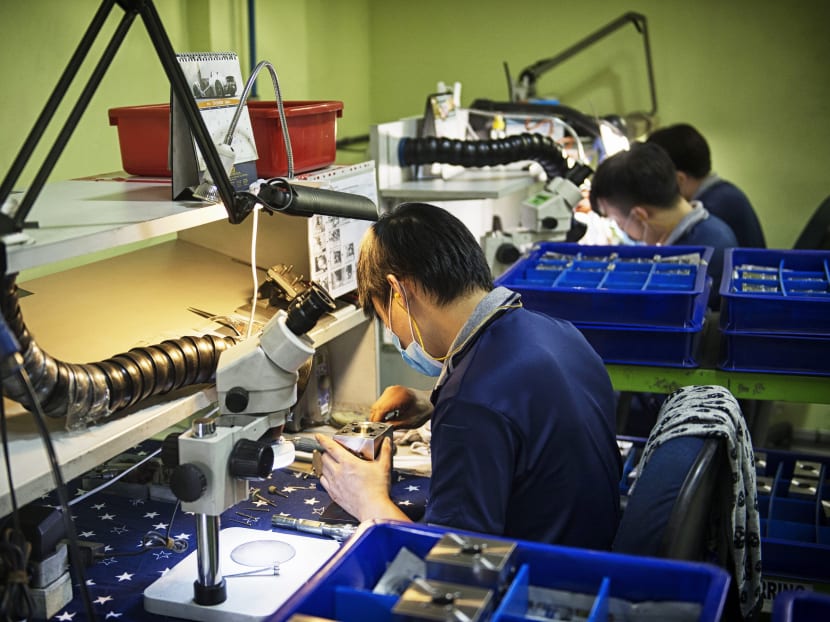Singapore PMI contracts for 12th straight month
SINGAPORE — Manufacturing activity in the Republic shrank for the 12th consecutive month in June, as demand for made-in-Singapore goods slowed amid a patchy global environment that could worsen in the coming months given the uncertainties surrounding Britain’s vote to leave the European Union.
SINGAPORE — Manufacturing activity in the Republic shrank for the 12th consecutive month in June, as demand for made-in-Singapore goods slowed amid a patchy global environment that could worsen in the coming months given the uncertainties surrounding Britain’s vote to leave the European Union.
The Purchasing Managers’ Index (PMI) for last month came in at 49.6, or 0.2 points lower than May and below the 50-point mark that separates expansion from contraction, said the Singapore Institute of Purchasing and Materials Management (SIPMM) on Monday (July 4).
“The decline in reading was due to a contraction in factory output, and a faster rate of contraction in both new orders and new exports. Manufacturing inventory and finished goods recorded faster rates of expansion, indicating stock accumulation by manufacturers,” said SIPMM.
The key electronics sector also recorded a full year of contraction, with its sub-index settling at 49 last month, or 0.1 point lower than May’s reading.
Economists noted that Singapore’s latest PMI data contrasted with the largely positive outcomes around the world. For instance, PMIs for the Eurozone and United States both beat expectations to increase to 52.8 and 53.2, respectively.
Closer to home, readings for South Korea and Taiwan also remained in expansion territory. However, China’s official and the private sector Caixin PMI data pointed to manufacturing activity remaining flat and contracting, respectively.
The overall improvement in PMI releases would have been more encouraging to the global economy if not for the uncertainties around Brexit, said Mr Song Seng Wun, economist at CIMB Private Banking.
“The shadow from Brexit isn’t going to help. We have seen many deals being put on the back burner, some deals being cancelled, as businesses on the buy side look for opportunistic buys, while those wanting to sell try to hold on to old valuations. Will these be conducive to a return in confidence in businesses and consumers? It’s debatable at this point,” he said.
“Factories should start getting busier in the run-up to the Christmas period, but they may not be as busy as they should be … This is where the challenge is for Singapore manufacturers: We are not seeing broad-based recovery in global demand. Our headline industrial output figures didn’t do too badly year-on-year because of base effects, but quarter-on-quarter, they are still somewhat weak.”
Ms Selena Ling, head of treasury research and strategy at OCBC Bank, agreed that “there is no light at the end of the Singapore manufacturing tunnel in the second half”.
“Domestic business confidence is likely to remain subdued in the near term, especially in the wake of the Brexit-induced uncertainties. It remains unclear if the domestic manufacturing and electronics will resurface above the 50 handle any time soon, notwithstanding the slight improvements elsewhere,” she added.
However, Ms Ling said that Singapore’s second-quarter economic growth should improve to 2.4 per cent year-on-year from the first quarter’s 1.8 per cent.
The forecast is based on an improved manufacturing sector, helped mainly by the semi-conductor and pharmaceutical clusters, as well as the resilient construction and services sectors.







